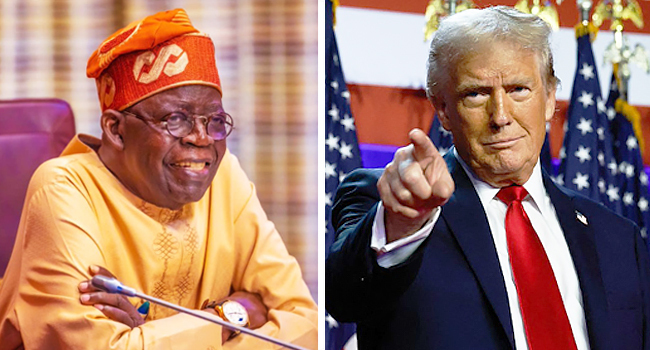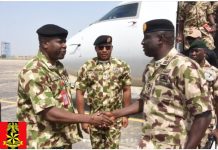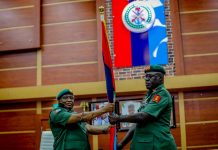Washington / Abuja — The United States President Donald Trump said he had ordered the U.S. Department of Defence to prepare for possible military action in Nigeria, while threatening to halt all U.S. aid — a dramatic escalation in rhetoric after he placed Nigeria on a watch list over alleged attacks on Christians.
In a post to his social media platform, Trump accused Nigeria of allowing a “mass slaughter” of Christians and said the United States would “immediately stop all aid and assistance to Nigeria” if the government failed to act. He warned the Nigerian government to “move fast” and wrote that U.S. forces “may very well go into that now disgraced country, ‘guns-a-blazing,’ to completely wipe out the Islamic Terrorists who are committing these horrible atrocities.”
Reuters
U.S. Secretary of Defense Pete Hegseth appeared to back the president’s directive on social media, posting a message that echoed Trump’s hardline language and saying the Pentagon was preparing for action. The White House and Pentagon referred reporters to each other for comment as the story unfolded.
Abuja Denies Allegations, Calls for Calm
The Nigerian presidency and officials swiftly rejected the characterisation. President Bola Ahmed Tinubu said the description of Nigeria as religiously intolerant “does not reflect our national reality” and pointed to government efforts to protect freedom of religion. Nigeria’s Foreign Ministry and other government spokesmen emphasised that both Christians and Muslims have been victims of violence linked to extremist groups, communal clashes and farmer-herder conflicts — and urged the U.S. to work with Abuja rather than threaten unilateral action.
Tinubu’s office also said Nigeria was cooperating with the U.S. and the international community to improve protection for communities of all faiths. A presidential spokesman described the U.S. designation and the president’s comments as an exaggeration of a complex security situation.
Al Jazeera
Context: Violence, Designation and Diplomatic Fallout
Trump’s post followed his decision to designate Nigeria as a “Country of Particular Concern” under the International Religious Freedom Act, a move that signals U.S. findings of serious violations of religious freedom and can trigger sanctions or other penalties. The designation — and the president’s subsequent remarks — come amid renewed U.S. political scrutiny of religious-freedom issues in Nigeria, driven in part by pressure from U.S. lawmakers and advocacy groups.
Nigeria has long faced a complex and multi-dimensional security crisis. Islamist militant groups, communal conflicts, cattle-herder disputes and criminal gangs have all contributed to high levels of violence. Independent analysts and some local reports note that victims of violence include both Muslims and Christians, and that the drivers of violence are not solely religious.
Analysts warn that public calls for unilateral military action raise serious legal, diplomatic and operational questions — including the requirement for credible intelligence, multilateral coordination, and adherence to international law governing the use of force. Senior U.S. and Nigerian officials had not, as of publication, announced any operational plans or timelines.
Nigerian commentators called for calm and stressed the importance of diplomatic channels to resolve disagreements. Some civil-society voices urged the U.S. to support capacity-building and cooperation to tackle violent extremists rather than pursue punitive measures that could destabilise the region further.
AP News














